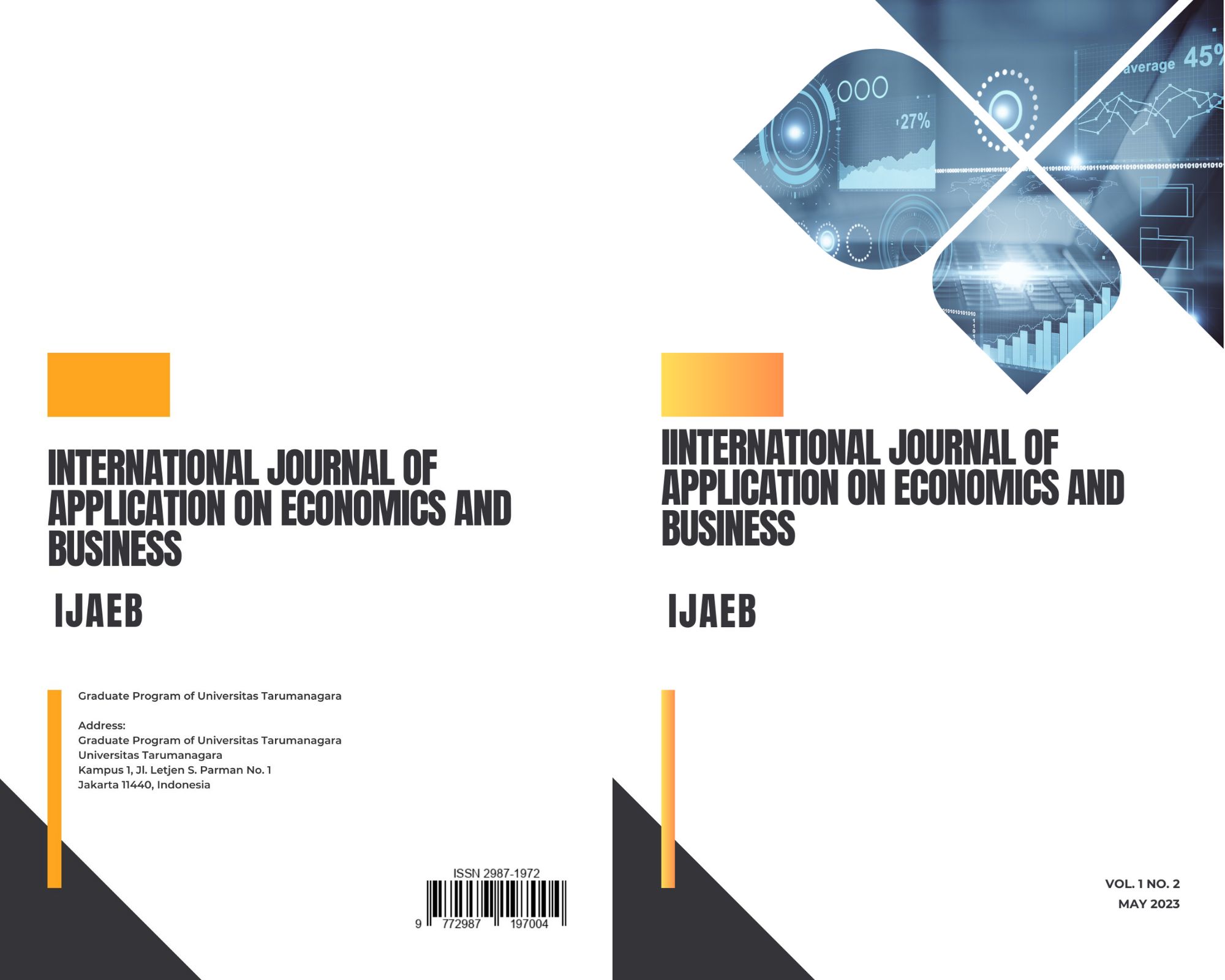THE EFFECT OF OMNI-CHANNEL CHANNELS ON CUSTOMER SATISFACTION IN RETAIL FASHION IN INDONESIA
Main Article Content
Abstract
The main purpose of this study is to analyze the effect pf Omni-Channel on E-Purchase Intention, P-Purchase Intention, Customer Experience and Customer Satisfaction and how brands use Omni-Channel to meet customer needs in retail fashion in Indonesia. This study uses primary data, the respondents in this study are people who have shopped fashion with online and offline channel. The model for this study used a non-probability sampling technique with purposeful sampling technique, therefore the sample used was 323 respondents. In addition, the analysis tool used in this study is structural equation modeling (Structural Equation Modeling-SEM) using the AMOS program. The empirical test results show that the Omni-Channel Capability has the greatest correlation value in influencing E-Purchase Intention, P-Purchase Intention, Behavior Intention to Customer Experience and Customer Satisfaction. The implication of this study shows that marketing managers must consider Omni-Channel strategy so that it can affect Consumer Satisfaction at fashion brand. For further research, it can also add and analyze additional factors that affect Re-Purchase Intention and Customer Loyalty.
Article Details

This work is licensed under a Creative Commons Attribution-NonCommercial-ShareAlike 4.0 International License.
This journal provides immediate open access to its content on the principle that making research freely available to the public supports a greater global exchange of knowledge.
IJAEB by Graduate Program of Universitas Tarumanagara is licensed under a Creative Commons Attribution-NonCommercial-ShareAlike 4.0 International License.. Permissions beyond the scope of this license may be available at https://journal.untar.ac.id/index.php/ijaeb
References
Ameen, N., Tarhini, A., Shah, M., & Madichie, N. O. (2020). Going with the flow: smart shopping malls and omnichannel retailing. Journal of Services Marketing, 35(3), 325–348. https://doi.org/10.1108/JSM-02-2020-0066
Bellaaj, M. (2021). Why and how do individualentrepreneurs use digital channels in an emerging market? Determinants of use and channel coordination. International Journal of Emerging Markets. https://doi.org/10.1108/IJOEM-08-2020-0882
Cortiñas, M., Chocarro, R., & Elorz, M. (2019). Omni-channel users and omni-channel customers: a segmentation analysis using distribution services. Spanish Journal of Marketing - ESIC, 23(3), 415–436. https://doi.org/10.1108/SJME-06-2019-0031
Kautish, P., & Sharma, R. (2018). Consumer values, fashion consciousness and behavioural intentions in the online fashion retail sector. International Journal of Retail and Distribution Management, 46(10), 894–914. https://doi.org/10.1108/IJRDM-03-2018-0060
Le, A. N. H., & Nguyen-Le, X. D. (2020). A moderated mediating mechanism of omnichannel customer experiences. International Journal of Retail and Distribution Management, 49(5), 595–615. https://doi.org/10.1108/IJRDM-02-2020-0054
Lynch, S., & Barnes, L. (2020). Omnichannel fashion retailing: examining the customer decision-making journey. Journal of Fashion Marketing and Management, 24(3), 471–493. https://doi.org/10.1108/JFMM-09-2019-0192
Mahadevan, K., & Joshi, S. (2021). Omnichannel retailing: a bibliometric and network visualization analysis. Benchmarking. https://doi.org/10.1108/BIJ-12-2020-0622
Nurhandayani, A., Syarief, R., Syarief, R., & Najib, M. (2019). The Impact of Social Media Influencer and Brand Images to Purchase Intention. Universitas Brawijaya Journal of Applied Management (JAM), 17(4), 650–661. http://dx.
Peña-García, N., Gil-Saura, I., Rodríguez-Orejuela, A., & Siqueira-Junior, J. R. (2020). Purchase intention and purchase behavior online: A cross-cultural approach. Heliyon, 6(6). https://doi.org/10.1016/j.heliyon.2020.e04284
Ürgüplü, Ö., & Yumurtacı Hüseyinoğlu, I. Ö. (2021). The mediating effect of consumer empowerment in omni-channel retailing. International Journal of Retail and Distribution Management, 49(11), 1481–1496. https://doi.org/10.1108/IJRDM-10-2020-0403



